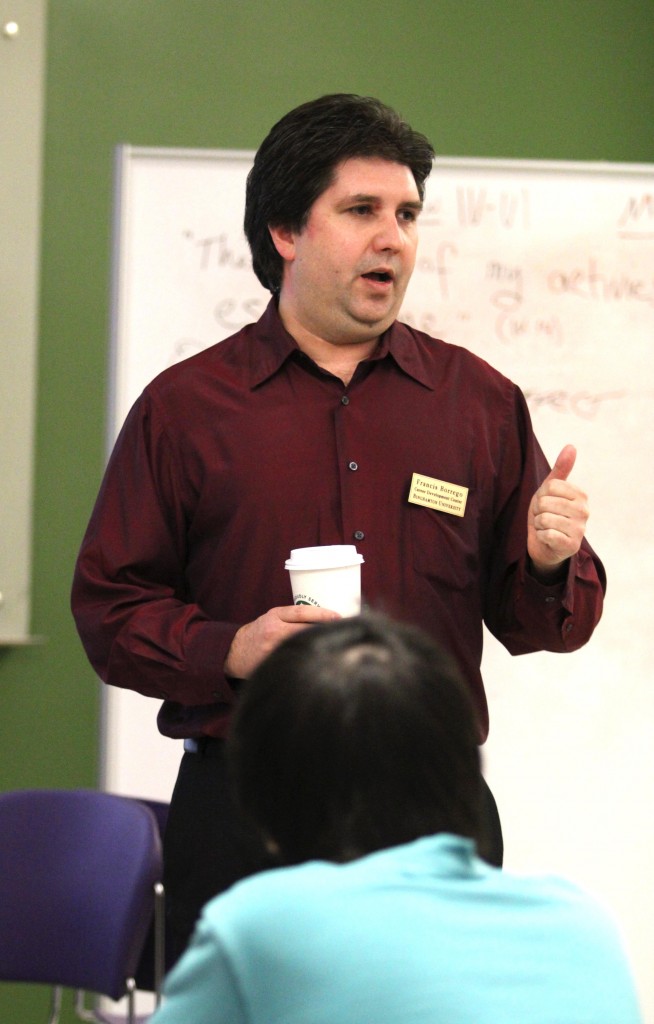
With many students in the midst of their hunt for a summer job or internship, the Career Development Center held a discussion Thursday night to prepare those entering the professional world for one of the most dreaded endeavors of job hunting: the interview.
“Students definitely need to work on their interviewing skills,” said Francis Borrego, a career counselor from the CDC. “Résumés and cover letters already get you a job interview, and it’s in the interview itself where you’re actually going to earn the position.”
Borrego talked about three important questions that interviewers want to know: Can you do the job? Are you passionate about the work? Are you a good fit for the organization? Responses to these questions, Borrego said, should be between 60 and 120 seconds.
Employers expect their candidates to be knowledgeable about their company, according to Borrego.
“Commonly what we hear from a lot of employers is that they’re not familiar with the company they are applying to,” Borrego said. “So one part of the interview process is doing your research in terms of the position your applying to and the company you’re applying to.”
A common question that interviewers ask is the open-ended, “Tell me about yourself.”
Kelly Brant, a graduate assistant in the Career Development Center, said that the goal is to answer this question professionally and to tell employers why you are right for their company. The question should not be answered as if you are on Match.com, Brant said.
Another common question is, “What are your strengths and weaknesses?” To answer this question, presenters advised students to use the STAR technique: Situation, Task, Action, Result. This technique uses personal anecdotes to put a positive spin on a weakness.
According to Borrego, employers want to know that interviewees are self-aware and have assessed their own skills.
The CDC offers interview preparation services like the mock interview program, which students can apply for through eRecruiting, and a book with potential questions that employers may ask.
“These info sessions are extremely helpful,” said Moushumi Dhar, a senior double-majoring in English and economics. “I was actually jotting down notes as they were going along each point. I actually wrote down answers that I would reply if asked the question.”
Sam Weisman, a junior double-majoring in psychology and human development, said the handouts from the presentation were helpful.
“I especially liked the packets they gave out and how they went over different types of interviews like the phone interview, the Skype interview and in-person interview,” Weisman said.
CDC presenters stressed that enthusiasm, confidence and preparedness are elements of a successful interview.
“A lot of interviewing is about self confidence,” Borrego said. “You need to be relaxed and open.”


